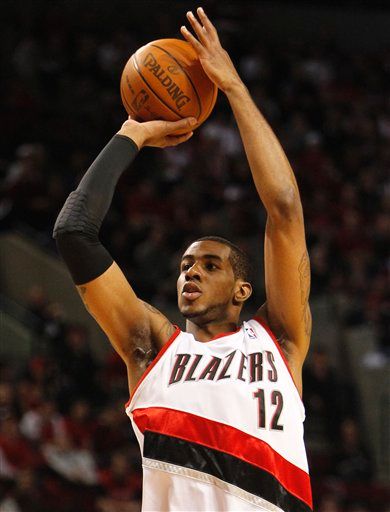Three Talent Management Observations from the First Day of NBA Free Agency
I continue to be on record as stating that HR/Talent pros can learn just about everything they need to know about talent management, leadership, team dynamics, managing for performance, and a million other things from careful observation of professional sports - and most notably the NBA.
Yesterday was the first full day of the league's free agency period - the time where teams are free to recruit, negotiate with, and sign to new contracts those players whose contracts had expired - thus making them 'free' agents. As usual, Day 1 of free agency led to a flurry of announced and rumored deals between NBA teams and the most coveted of these players, three of which I want to mention here, as they all reveal some interesting insights towards talent and how top talent and exemplary organizations think.
1. LeBron James and the 1-year deal - While the norm across the NBA on Day 1 of free agency has been for the most prized free agents to agree to 4 and 5-year deals for very large dollar amounts, (Kevin Love, Draymond Green, DeMarre Carroll, etc.), the league's very best player Lebron James is reported to only be willing to accept a 1-year deal from his current team, the Cavaliers. This short-term deal, while being riskier for James, (in case he gets injured), secures his leverage with team ownership, as he can demand that the Cavs do everything possible to field a contending caliber team, with the threat of losing James looming at the end of each season. Keep LeBron happy and you get to keep him. So while lots of talented players are willing to take 4 and 5 years, the best player doesn't need that security, he would rather keep the power shifted in his direction. The same probably holds true for the best, most-talented pros in any field. You need them more than they need you.
2. Gregg Popovich will not call you at midnight - Popovich, the longtime coach of the San Antonio Spurs, one of the league's most admired and successful teams of the last 15 years, eschews the practice of attempting to begin wooing free agents at the stroke of midnight on July 1, the official starting point of free agency. According to Pop, "I'm not calling anyone at midnight, I'll be in bed. And if that's the difference in someone coming or not coming, then I don't want them." That stance cements two points in the recruiting process for the Spurs. One, they don't need to try and impress free agents with the (silly) gesture of the midnight phone call. And two, they realize that any player that requires that kind of a gesture in order to have their ego massaged is probably not the kind of player the famously unselfish and team-first Spurs are interested in having anyway. This is a great example of an organization living up to and reinforcing their specific culture in the recruiting process.
3. LaMarcus Aldridge is not impressed - One of the most in-demand free agents this year is LaMarcus Aldridge, formerly of the Portland Trailblazers. In his meeting with the Los Angeles Lakers, a storied team that has recently fallen on hard times, Aldridge came away unimpressed. The reason? The Lakers presentation focused too much on off-the-court opportunities that the Los Angeles market can provide, and not enough on how the team plans to actually get better at playing basketball. Aldridge has his pick of about a half-dozen teams, the market price for a player like him is pretty well defined, so money is not really an issue, so it actually boils down to the work and the opportunities to be on a competitive team that matters to him. The Lakers are trying to play off a reputation that might have mattered 20 years ago, but is lessened in its value today. Lesson here? You might have been a top place to work in 1998, but that matters almost nothing today to talented pros who want to grow in their careers.
As these three short examples indicate, the power dynamics at play between organizations and the best talent are always fascinating to watch. While different, they all lead us to just about the same place - he/she who holds the power gets to make the rules. And that balance is just that, a balance. Which means it can shift, subtly at first, but sometimes dramatically, leaving the unprepared side to wonder what the heck just happened.
Have a great July 4th holiday weekend in the USA.
Quick editorial note - I am on the road for most of the next two weeks, making my first trip to China and Hong Kong in preparations for next years' first ever HR Tech China Conference. So posting may be a little sporadic over that time.

 Steve
Steve
Reader Comments